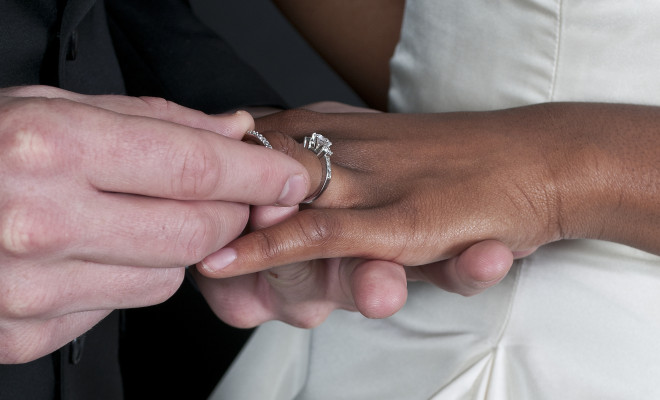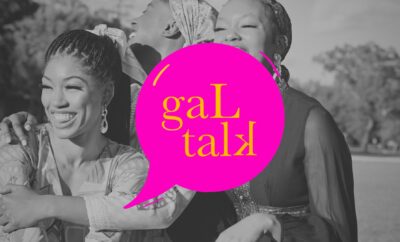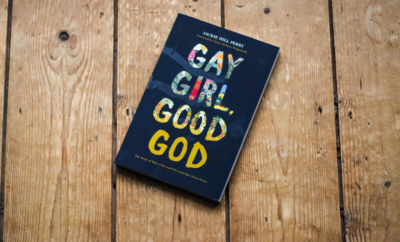
The Color of My Skin is Not a Sin
Last year my husband and I drove down to San Antonio, TX for a weekend getaway. We did the “gamble for your hotel” site where you get a great price for a mystery hotel. Well, we ended up with a very nice hotel on the River Walk in the middle of all the sites. Friends suggested we eat breakfast at a restaurant with authentic Mexican cuisine in Market Square, so we did. As we strolled through the Square after breakfast, I noticed rainbow-colored banners donning the plaza. People were busy setting up tables for the festival, the LGBTQ festival. Naturally, we visited a few tables. I remember the young man who has two fathers, and the lesbian who attends a church where she doesn’t have to reconsider her lifestyle. But it was the racially charged statement of one advocate that lodged itself under my skin. He said the fight for gay rights is just like the one fought by African-Americans for their civil rights. Though I could have responded better, I politely ignored his solicitation for empathy.
In the months since that encounter, I pondered his statement. While I believe every person deserves respect, I resent the proponents of the homosexual agenda jumping in bed with the plight of African-Americans in our fight for civil rights. I strongly object to the union because the two fights have different moral dispositions. The color of my skin is not a sin, homosexuality is (Romans 1:26,27). A journey into our country’s roots will demonstrate why the two issues may appear to be the same, but are different on multiple levels.
A recent news story reminded me of the incident in San Antonio and sparked my interest in the civil rights debate.[*] A same-sex couple declared that a baker committed an indecent act against them at the counter of the Masterpiece Cakeshop (Master) in Lakewood, Colorado. The bride wanted to celebrate his union with friends and family, cake included, but the Master’s baker refused to bake a wedding cake. He cited that doing so would violate his Christian beliefs. The couple decided to take the bakery to court because they felt that their civil rights had been violated. The Colorado Court of Appeals sided with the same-sex couple.
As an African-American woman, I’ve tried to put myself in the position of the same-sex couple. At one point in America’s history I would have had no legal recourse if the Master’s baker refused to bake me a three-tiered fondant-frosted strawberry wedding cake because of the color of my skin. In 1964, civil rights legislation outlawed discrimination based on race, color, religion, sex or national origin. (Wipe the sweat off my brow!) While racism lives well in America, the law encourages the major culture to extend basic social graces to minorities. I would feel rejected if the Master’s baker refused to whip up a cakey delight for my nuptials just because of my race. The sting of rejection incites a craving for justice.
While I might empathize with this same-sex couple’s feelings of rejection, my experience as an African-American rests in a different moral paradigm. African-Americans are an unaltered expression of God’s creativity. Though people may dislike the hue of my sun-kissed pigment, the color of my skin is not a sin (Ezekiel 18:4; Matthew 28:19; Revelation 5:9; Revelation 7:9). Homosexuality, however, is a perversion of God’s creative design for marriage between a man and a woman (Genesis 2:21-25; Genesis 5:2; Matthew 19:4; Mark 10:6). Nevertheless, a Christian worldview is not what won African-Americans their civil rights, or solely freed us from slavery.[†] The real reason rests in the rationale planted in the moral fibers of this country at its inception. If one looks at the roots of this country, she will also find the fertilizer that nourished the June 26, 2015 Supreme Court decision that made gay marriage a constitutional right.
The entwined roots of American’s history have led some to believe that Christian ideologies undergird the principles which govern this country.[‡] On the contrary, the rational thinking of the Enlightenment[§], a philosophical movement in the 1700’s in Europe, gave birth to this nation. Enlightenment rationalism taught us that the human race is more enlightened than the God who created us. Consequently, we have progressively become our own god. We define our own sins. We supersede God and His laws. We make our own laws. While on the issue of slavery and racial inequality Christian values may have intersected with the beliefs of our nation’s founding, the values currently surfacing reflect the true character of America’s roots. This is why the Master’s baker needs “re-education,” per the courts. He needs to learn to submit to human law instead of God’s law, thus re-education.
Not only is the African-American struggle for civil rights different from that of the LGBTQ community because of the moral disposition of the issues but also because of the motives of the offenders. The rejection of African-Americans is based on hate. Why anyone would hate my perfectly brown-tinted God-given colored skin is beyond me, but they do. Conversely, if the same-sex couple asked the Master’s baker to prepare two decadent chocolate tower grooms’ cakes and he refused, it was because of love, not hate (Romans 1:31, 32; 1 Corinthians 10:31-33). When a Christian rebukes a person in obedience to God, the intent is to prick that person’s conscience (2 Timothy 3:16). The sorrow from rejection she experiences should cause her to re-examine her life and lead her to repentance (2 Corinthians 7:9-11). True repentance will bring her into a relationship with God. In that way, the Master’s baker loved them well. In his obedience to God, he loved them more than he loved his business. He loved them better than I loved the man in the Market Square that day in San Antonio, TX.
Some African-Americans may feel that the two fights reflect the same shade on the inequality rainbow. If one only considers the Enlightenment ideologies of reason and individualism, on which America were built, she would be correct. But if God’s principles are one’s standard, it is easy to understand that the color of my skin is not a sin.
[*] http://www.adfmedia.org/News/PRDetail/8700
[†] https://ipa.org.au/sectors/ideas-liberty/publication/2198/how-christians-classical-liberals-defeated-slavery
[‡] http://www.forbes.com/sites/billflax/2012/09/25/was-america-founded-as-a-christian-nation/#30e013f14cd9; http://www.cnn.com/2015/07/02/living/america-christian-nation/
[§] http://www.philosophybasics.com/historical_enlightenment.html





